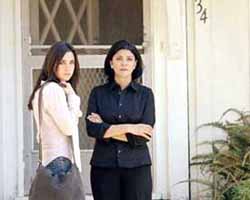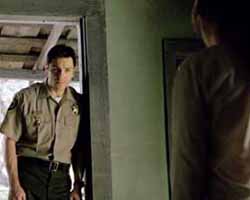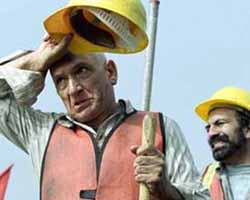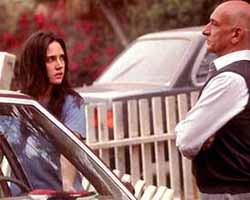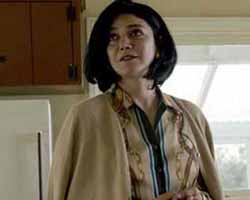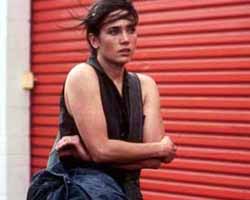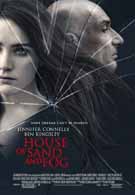In Roger Ebert's review of Road to Perdition, he said, "Road to Perdition is like a Greek tragedy, dealing out remorseless fates for all the characters. Some tragedies, like Hamlet, are exhilarating, because we have little idea how quirks of character will bring about the final doom. But the impact of Greek tragedy seems muted to me, because it's preordained.". While I can’t fully agree with that statement, (Road to Perdition was of the best movies of last year) I now understand what he means. In House of Sand and Fog all the characters seem to be moving on rails, they seem to have no choice in what they do or say, and while the tragedy may be of the highest order it never quite reaches the level it should. In the end House of Sand and Fog is saved by its performances, which are of the absolute highest order.
The brightest performance is by Ben Kingsley, playing Massoud an ex Iranian Air Force man who was driven from a life of riches and into poverty when the Shah collapsed. One day though he finds out about Public Auctions and picks up a house for next to nothing. This house represents all his hopes and dreams. It will give him the foothold in America that he has so desperately sought, it will make him look substantial in the eyes of his new In-laws, and more or less give him back his honor. Then trouble starts. The house's former owner, a foolish woman whose irresponsibility lost her the house in the first place is attacking him and his family, screwing up sales and setting a weak willed sheriff on the immigrants. Proving he is the most capable actor working today, Kingsley mixes his Gandhi and Don Logan personas together to give a performance of righteous anger and utter ferocity.
Of course like all great films that is not the only story. The other story is of Kathy, played by Jennifer Connelly with her own unique brand of haunting beauty. Hers is the story of a woman recovering from alcoholism and abandonment. For her, the house is a last refuge, a connection with her old life, and the last chance she has. When she loses it to a technicality, she offers to buy it back from the greedy, ruthless foreigners for the same price at which bought it. When they refuse, she enlists the help of a righteous deputy who is willing to sacrifice the letter of the law for just plain right.
It is a testament to strength of acting and screenplay that we are able to except both sides without problem. All sides are given equal blame, all sides are accepted as right, and all sides are given punishment; the wrath of God which ruins anyone in the vicinity. First time director Vadim Perelman does a fine job juggling story lines and handles his actors with a skill that a veteran might find difficult to muster.
I do have a complaint, although to be fair, it it was written this way in the book. The complaint is about Lester played by Ron Eldard. While all the other characters are fully fleshed out with motivations and brains, Lester plays like a necessity of the plot. We never really understand why he does what he does. He is simply drawn as unlikable, dropping his wife and child at the bat of Kathy's eye lashes. In a movie like this, a character like that deserves more.
House of Sand and Fog could have been one for the ages. A tale of morality, rage, and the American dream that would have hurt all the more if for even a second it seemed as though anyone involved had a ghost of a chance.
